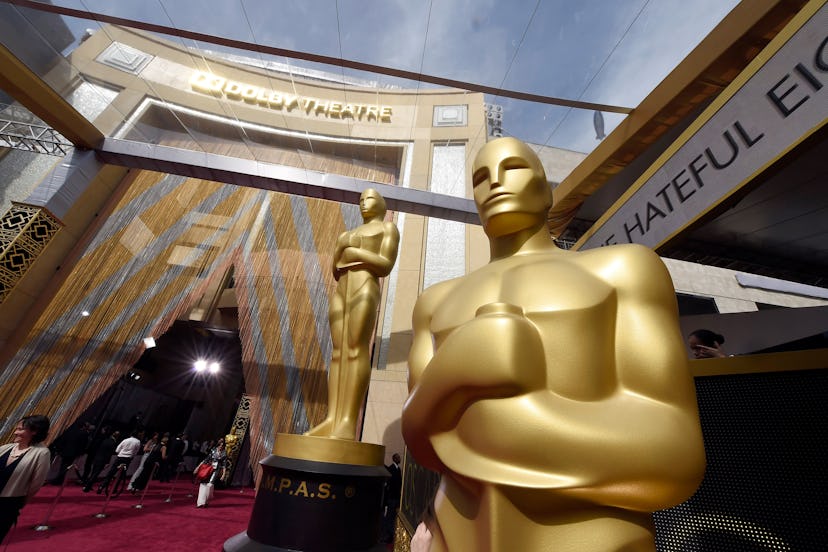James Cameron Thinks the Oscars Have a Bias Against Blockbusters
“Your typical year the Academy takes the position of: ‘It is our patrician duty to tell the great unwashed what they should be watching,'” says Academy Award-winning director James Cameron.

Among the nine films nominated for Best Picture at the Academy Awards this year just one cracked the top 25 highest grossing films released in 2016. That’s La La Land and it’s barely in the list at all, at 25 (though, it’s likely to be joined by current 26th-place holder Hidden Figures by the time the ceremony actually takes place).
Manwhile, most of the films that Americans actually went out to see to cinemas had to settle for minor nominations in lesser categories if they were even recognized at all. Rogue One: A Star Wars Story walked off with just two nods, both in technically categories.
Director James Cameron, the man who brought us Titanic, Avatar, and Terminator, seems to think that the awards have something of a bias against big films.
Asked by The Daily Best about the recent trend of sagging ratings for the Oscars telecast, Cameron blames it on the types of films recognized.
“Your typical year the Academy takes the position of: ‘It is our patrician duty to tell the great unwashed what they should be watching,’ and they don’t reward the films that people really want to see—that they’re paying money to go see—and they’re telling them, ‘Yeah, you think you like that, but what you should be liking is this,'” he said. “And as long as the Academy sees that as their duty, don’t expect high ratings.”
He claims the ceremony should either be happy to recognized little-known films or try to fix ratings by nominating films with wider appeal, but not both. He took the opportunity to point out that his own film, Titanic, did break the trend. Indeed, the ceremony where Titanic took home the big trophy was the highest rated Oscars telecast in recent memory.
Cameron, however, seems to think that a large portion of the Academy membership, namely the actors, have a bias against films that rely more on visuals to tell their story rather than humans.
“There’s definitely a bias,” he said. “The Academy still has a majority of its members that are actors. Look, I love actors, but that’s how they think—they’re generally skeptical of technology. So when they see a film that’s too dependent on visual effects, they say, ‘Oh, that’s not an acting movie.'”
Again, he takes the opportunity to point out how special Titanic was: “Well Titanic was a visual effects movie in sheep’s clothing, you know? Yes, it had visual effects, but it was about the people and about the story.”
Still, part of the problem is that Hollywood empowers few directors to make a movie like Titanic in the first place, an original screenplay with a famously big $200 million budget (which would translate to about $300 million in today’s dollars). Young directors today don’t get handed even a fraction of that amount of money to make their passion project like Cameron did. Instead, they get that amount of money to direct a comic book film a reboot or some other franchise flick.
Asked if he’d do something like that, Cameron replied, “I’m not the slightest bit interested in laboring in someone else’s house.” But few other directors are actually in that position.
Take Barry Jenkins for example. He was offered big studio jobs after his breakthrough indie film Medicine for Melancholy, but instead he decided against that route and waited eight years to make Moonlight instead. Even if Moonlight does prevail at the Oscars, it’s doubtful he’ll get a $150 million to make the sci-fi epic of his dreams either.
It doesn’t seem like this is as much an Oscar problem, as it is a wider Hollywood problem.
Not that the Oscars isn’t still useful to Hollywood at large despite not drawing in as many eyes as it used to. Would Jennifer Lawrence have quite the same career if she wasn’t nominated for her role in Winter’s Bone, a film few had seen? Lawrence was just a year removed from a stint on The Bill Engvall Show at the time. Viola Davis wasn’t a household name until her 2009 nomination for Doubt, and now she has a hit TV show and added the only bit of gravitas to this summer’s Suicide Squad. Heck, would we even take Matthew McConaughey nearly as seriously if it weren’t for his Oscar win?
Watch W’s Most Popular Videos: